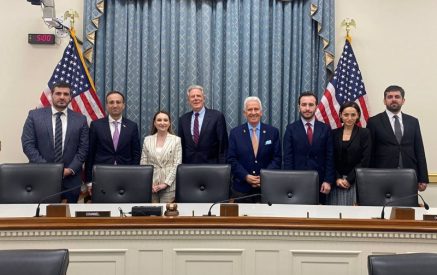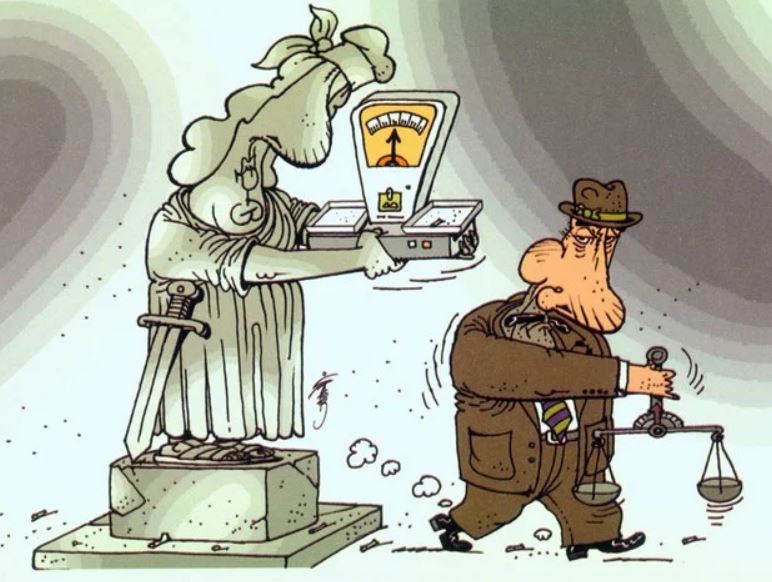Why are contractual relationships more effective than trusting in justice?
According to the Dutch sociologist Gert Hofstede, there is a criterion in the cultural peculiarities of different nations, which passes through the axis of “collectivism-individualism.” It is clear that the Dutchman prefers individualism, which, according to him, gives rise to prosperity, democracy, freedom of speech, etc. Contrary to the sometimes voiced everyday notions of purely sociological dimensions, we Armenians are collectivists, moreover, we belong to the “particularist” type of collectivism, that is, we reject individual responsibility, we refer to “others”, saying that we are ready to do it according to the law or something required by social norms, but only if “others” do the same. If we bring a rough example, we are ready to add garbage to our share of garbage, seeing that “everyone does it.”
It should be noted that this is not an ethnic but a cultural feature, for example, the behavior described above is not at all specific to Armenians living in North America or Europe. Moreover, the situation in Armenia has changed in the last 30 years. But for now, the culture the Soviet Union inherited from the Russian Empire is predominant. Individuals tend to come to terms with each other on their own initiative, and that is why they value freedom. Collectivists do not emphasize the need to come to terms with each other, they prioritize the justice that someone should give them.
The “source of justice” can be the state, the king, the head of the institution, even nature or destiny. For example, in 1988 we demanded that Gorbachev “fairly resolve” the Karabakh conflict, that is, transfer that autonomous region to Armenia. Even now, there are people in Armenia who dream that the relations between Moscow and Ankara will deteriorate so much that Russia will occupy a part of Turkey, after which it will give us Masis.
Read also
Because that is what “historical justice” demands. An agreement, a contract, an “agreement” is something that may or may not work, the parties may be decent or deceitful. For example, when we enter into a loan agreement with a bank, the bank may indicate in small letters a point that we do not notice, but which may be crucial in bilateral relations. But we do not go to the bank and say, “Give me a loan with such an interest rate, because that would be fair.” Fair for whom? We can, at least in theory, dispute the fulfillment or non-fulfillment of the clauses of the contract. Never justice.
The famous Israeli thinker Yuval Harari gives such an example: Two chimpanzees are sitting in the cages. People approach them from time to time and give cucumbers to both of them, and both monkeys are happy. But suddenly people change their decision, they start giving bananas to one of the chimpanzees, and the other continues to be satisfied with cucumbers. Naturally, the monkey that gets the cucumber starts to scream. Can we say that he is complaining about injustice?
If yes, then justice is a very relative category, it is different not only for the subjects, but also changes its nature from the point of view of the same subject over time. American psychologist John Stacey Adams developed the so-called “theory of justice” based on research he conducted in 1963 at General Electric.
People subjectively compare the rewards for their efforts with the rewards their partners receive for doing similar work. Employees who feel that they are being paid poorly by this standard either start working less intensively or try to get their pay adequate. If people think they are being paid more than they deserve, they are usually silent and do not change their behavior.
The criteria are again not absolute; they are strictly relative and subjective. It is much easier for a manager to refer to a contract that an employee has signed with the company than to explain each time why this or that pay is fair or unfair. Thus, the notion of “justice”: when we try to apply it in politics, business or even in life, contains many uncertainties, it is vague, elastic, and, by and large, incomprehensible. For the weak it is a reason to complain about life, for the strong it is an excuse to achieve its goals.
Aram Abrahamyan



























































